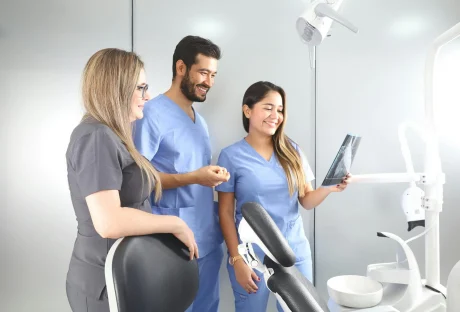While cannabis usage and exploration are evolving, the shadow of its most popular cannabinoid pair, THC and CBD, may finally be lifting on two newbies to this magical family tree within the flower we all know and love Cannabigerol (CG) and Cannabinol (CBN).
With the preponderance of experience from the familiar fun of THC-induced highs to the meditative balm of CBD’s therapeutic benefits, these less-well-known cannabinoid compounds may come as a surprise – and cannabis connoisseurs may just find them to be a treat for the CBD-toned brain. And as one who’s dipped a toe into all things cannabis-related personally and professionally, I’d like to share some insights into these so-called minor cannabinoids, but in a major, professional, and trusted way.
Hail to the unknown and underappreciated! Enter CBG and CBN, stage left Research, personal experience, and murmurs of the ganja community are about to collide for your entertainment and perhaps enlightenment about these two oft-overlooked members of the cannabis clan.
What Are CBG and CBN?
To get the lowdown, it’s a good idea to figure out exactly what CBG and CBN are. CBG, or cannabigerol, is sometimes referred to as the ‘mother of all cannabinoids’ because, in its acidic CBGA form, it’s the precursor molecule of several other cannabinoids.
Non-psychoactive, it’s believed to have a number of potentially beneficial therapeutic actions. The other compound is CBN or cannabinol, which results when THC ages and breaks down. It’s mildly psychoactive but nowhere near as much as cannabis itself.
The Unique Promise of CBG

CBG first came onto my radar when I was researching botanical solutions to gut ailments. Word on the street was that the cannabinoid could potentially provide immense relief – an assertion ostensibly supported by CBG’s reported anti-inflammatory and analgesic effects.
In my case, I found some of that buzz to be spot-on. Soon after adding this cannabinoid to my routine, I took note of some discernible improvements with respect to my digestive comfort. I didn’t experience transformative results right out of the gates but, over time with continued use, those uncomfortable days grew less frequently.
Studies also indicate that CBG might have neuroprotective, anticancer, and antibacterial effects. CBG might be the ultimate versatile cannabinoid for physical relief and preventative health benefits.
The Calming Effects of CBN
The first time I used CBN was to help a friend sleep better. She’d tried meditation and melatonin without much luck. Both made her light and scatterbrained and though she could manage her insomnia with the sheer force of will, she was curious to try another approach. I was curious, too, and decided to experiment alongside her.
My own sleep patterns were never great, even on nights when I could turn off the TV (and the iPad) in time to hit the sheets by midnight. Alongside her, I found CBN to be a relaxing sleep aid.
I wouldn’t call it a ‘sleeping pill’ as it doesn’t put you down for the night quite the same way that sort of remedy does. But there are lots of nights when I need a nudge toward rest, times when my mind is filled with deadlines and to-dos. On those occasions, a CBN-infused tincture has become an excellent tool for inducing a Guitar-Strum-Country-And-Western brain noodle.
CBN is also being tested as a pain reliever, anti-inflammatory, and neuroprotectant (a compound with the ability to reduce cell death associated with stroke, traumatic brain injury, and neurodegenerative disorders). Human trials are just beginning, but the outlook appears encouraging.
Personal Experience: A Balancing Act

My experience trying to understand the world of CBG vs CBN has been confusing, enlightening, and, above all, very informative. I have learnt that, while both cannabinoids can supplement our lives, they have to be used at the right time to work for specific needs.
CBG has become my ally during the day, a cannabinoid that makes me feel slightly better than usual but does not have any psychoactive effects. CBN will stay in my nighttime routine, not as a substitute for sleeping pills but as a way to create a more prone state.
Pros and Cons
Pros – CBG:
- Potential digestive aid and anti-inflammatory.
- Non-intoxicating, making it suitable for daytime use.
- Versatile benefits span from neuroprotection to antibacterial effects.
Pros – CBN:
- Promotes relaxation and may improve sleep quality.
- Mildly psychoactive, offering a gentle experience.
- Potential pain reliever and anti-inflammatory properties.
Cons – CBG:
Low availability and more expensive due to lower yields from cannabis plant.
Research is still emerging, making definitive conclusions about its efficacy premature.
Cons – CBN:
Effects can vary greatly among individuals; not everyone may experience significant sleep benefits.
Because it’s apparently derived from the degradation of THC, its legal status can be unclear in some places.
Final Thoughts
This journey of discovery into CBG and CBN has both amazed me and taught me a lot. My experiences have generally been good ones, but reactions can differ – start small and work up from there, to be sure.
While the research is still emerging, it’s possible that CBG and to some extent, CBN can transcend their minor cannabinoid status and join the ranks of CBD and THC. For cannabis connoisseurs and curious neophytes alike, this new frontier means looking deeper than ever into the increasingly multilayered beauty and therapeutic promise of the plant. Cheers to good science and many more cannabinoids on the horizon.
Read Also:
- How Does CBD Affect Your Drug Tests?
- How CBD Oil Capsules Are Changing People’s Lives
- What is Cannabis Oil and how does CBD Oil Work?























